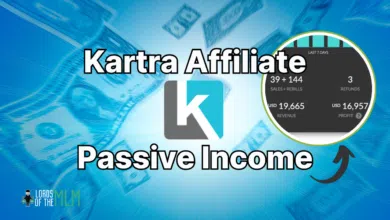In this article, we will delve into the details of Shao Bank, a financial institution that has garnered attention recently.
While they approached me for a sponsored video series, I declined the offer. However, I believe it is essential to share my findings with you, as there are several red flags and concerns surrounding this bank. Please note that this article aims to raise questions and present information, rather than labeling Shao Bank as a scam. It is crucial for individuals to conduct their own research and make informed decisions. Let’s begin our exploration.
Shao Bank: An Overview Shao Bank portrays itself as a reliable financial institution catering to active individuals seeking loans for various purposes, including property renovation. They claim to provide loan application decisions within 24 hours, which is relatively fast. Additionally, Shao Bank emphasizes the presence of insurance coverage protecting against theft, business failures, and other insured events, creating a sense of security for potential customers.
Understanding the Background: To gain a better understanding of Shao Bank, it is essential to examine the key entities associated with it. Shao Bank is a subsidiary of Global Future Enterprise Group, which began its operations globally in 2006. This group engages in various sectors such as banking, insurance, investment, advertising, training, energy, and culture. While these affiliations might initially instill confidence, it is crucial to scrutinize them further.
Evaluation of Shao Bank: Despite the impressive claims made by Shao Bank, there are multiple factors that raise concerns about its credibility. Firstly, the lack of verified third-party audits and statements to substantiate their claims is a significant issue. Additionally, the absence of external companies endorsing their operations further diminishes their reliability.
Hong Kong Monetary Authority Alert: On March 21, 2023, the Hong Kong Monetary Authority (HKMA) issued an alert to the public regarding Shao Bank. The HKMA clarified that Shao Bank does not possess the necessary authorization to conduct banking business or accept deposits in Hong Kong. Furthermore, they do not have approval to establish a local representative office under the banking ordinance. It is crucial to consider this official statement, as it significantly impacts Shao Bank’s legitimacy.
Contradictory Information: Following the HKMA alert, an article published two days later claimed that Shao Bank’s authorization had been reinstated after further verification. However, this seems highly improbable, suggesting that the article may be unreliable or misleading. The absence of clarity and contradictory information raises doubts about Shao Bank’s credibility.
Questionable Investment Offers: Another aspect that raises concerns is Shao Bank’s investment offerings. They promise returns ranging from 0.2% to 0.5% per day. Such high returns within a short period are typically associated with high-risk investments or Ponzi schemes. It is essential to exercise caution when encountering investment claims that seem too good to be true.
Lack of Third-Party Verification: One significant drawback of Shao Bank is the absence of external verification or auditing of their operations. Without independent assessments, it becomes challenging to ascertain the legitimacy and stability of the bank’s financial activities.
Conclusion: While it is not conclusive to label Shao Bank as a scam, it is crucial to approach them with caution due to the concerns raised in this article. The lack of authorization from the Hong Kong Monetary Authority, contradictory information, questionable investment offers, and absence of third-party verification make it difficult to trust the bank’s claims fully. Conducting thorough research, seeking expert advice, and making informed decisions is vital when dealing with financial institutions.





